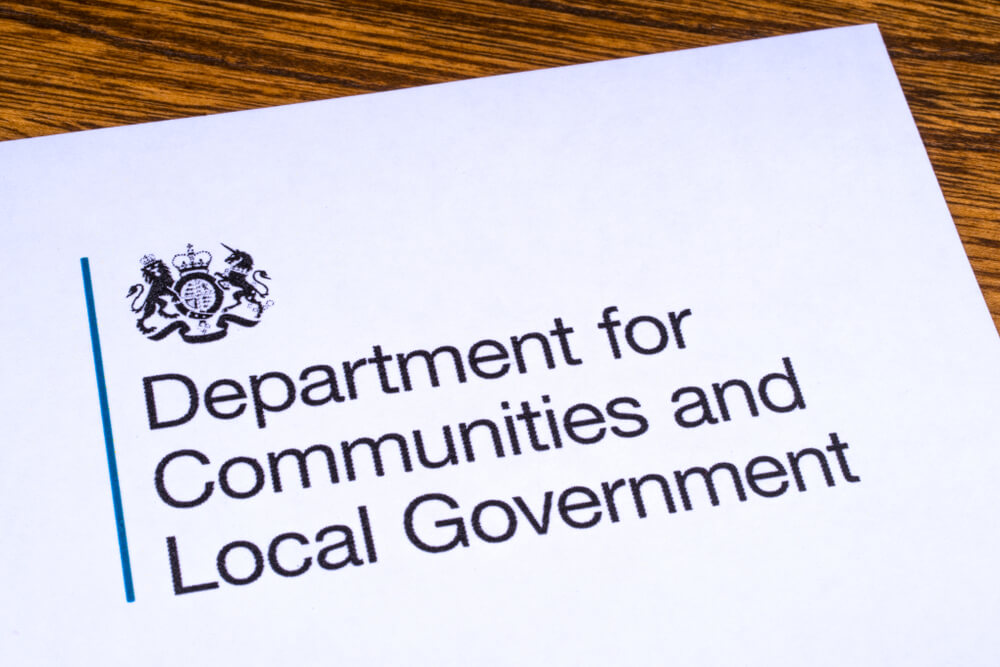What is a Local Government Officer?
Local Government Officers ensure that council policies are followed, and that community services are provided effectively. Local Government Officers work in different council departments, like education, housing, planning, or social work, to carry out the decisions made by local councils. They ensure that council policies are implemented and that municipal services are delivered effectively.
Managing services that influence the health, safety, and well-being of all individuals in a community may be complicated and difficult. Whether it’s addressing a major issue for the community or answering a simple query for a person who doesn’t know where to turn, public service provides professional fulfilment by achieving both large and small outcomes.
Career professionals in Local Government are highly driven and devoted to their work and the people they serve. They address the day-to-day concerns that affect most of the world’s population. They ensure the delivery of critical community services to citizens and taxpayers, such as emergency services, water, wastewater, refuse collection, building development, housing services, social services, financial stewardship of taxpayers’ money, and general administration services, while upholding the profession’s high ethical standards in a constantly changing environment.
A municipal government professional now, more than ever, must be able to think through ideas and collaborate with others toward a shared goal. For people who are interested in public service, a career in Local Government is a wonderful choice. Public service is frequently about giving rather than receiving, placing the community’s good ahead of individual interests. It’s about empowerment, leadership, innovation, connections, and opportunity.
Responsibilities
The duties and responsibilities of a Local Government Officer include:
- Liaising with other departments of the council, such as finance or marketing.
- Creating and promoting a policy and performance framework that supports the department’s operational and strategic functioning.
- Coordinating replies to national and local consultations on specific policy issues, such as education.
- Supporting and guiding the democratic system, such as the local committees.
- Assisting in the development, planning, and implementation of policies and procedures.
- Coordinating council/authority decisions and distribution of reports to persons impacted
- Organising and maintaining meetings
- Researching, preparing, and writing reports and briefing papers
- Coordinating departmental and corporate plans.
- Monitoring and reporting on performance and quality concerns in order to ensure value for money
- Providing policy and performance information, counsel, and direction
- Collaborating with members of the public, councillors, and other stakeholders, as well as presenting information at meetings as needed.
- Dealing with inquiries and providing advice.
- Supervising and managing people.
- Managing and assessing projects.
- Coordinating and collecting data for external inspections, including evidence of legislative compliance.
- Managing budgets and funding.
- Coordinating communication strategies, such as publications and departmental websites
- Liaising with external partners and agencies, such as private and voluntary sector organisations, contractors, and other local councils/authorities.
Salary
The salary for Local Government Officers is primarily influenced by experience, sector and location. The UK national average salary for a Local Government Officer is £32,272, ranging from £24,000 to £43.000 per year.
The average London-based salary for a Local Government Officer is £33,400, ranging from £23,000 to £48.000 per year.
Working hours and work location
Local Government Officers operate mostly in offices; however, travel within the local authority region may be required. Their normal working hours are from 9 a.m. to 5 p.m. Local Government Officers operate in a range of areas that have an impact on the community, including:
- Education
- Transport
- Health and social care
- Environment
- Finance
- Regeneration
- Housing
- Human resources
- IT
- Legal
- Leisure and culture
- Tourism
- Planning
What to expect
As a Local Government Officer, you would design and manage key public services such as education and housing. One of your tasks would be to ensure that customers receive quality services that fulfil their requirements and are cost-effective. The councillors, who are elected by the people, set the council’s goals, and it is the role of the Local Government Officer to figure out how to achieve those goals. A Local Government Officer interacts with people from a wide range of backgrounds throughout the day. They can also work in a range of departments and responsibilities, such as service planning or heading a team that implements the plans. A Local Government Officer must adhere to budgets and use money wisely. As a Local Government Officer, your daily activities will vary depending on your department and your degree of responsibility.
Qualifications
Local Government personnel’s educational and professional backgrounds have developed over time. In the early days of the profession, many were recruited from the ranks of civil engineers, who were trained to create and maintain the community’s infrastructure (such as bridges, roads, and water systems). Aspiring Local Government Officers nowadays come from a range of academic backgrounds. Undergraduate degrees in the humanities and social sciences, like English, philosophy, history, economics, and political science, are a good start, since the job requires an analytical and creative mind as well as good writing and communication skills.
Traditional bachelor’s degrees in political science, public administration, or business may qualify you for Local Government roles. A master’s degree will additionally boost your competitiveness when looking for employment within the Local Government sector. It is beneficial to have a master’s degree in public administration. Finance, microeconomics, statistics, planning, dispute resolution, leadership, organisational behaviour, project management and programme assessment.
For jobs in specialised fields like planning or housing, you may need a degree in something like town planning, urban design, or housing. Graduates holding a 2:2 or above in any field are eligible to apply to the National Graduate Development Initiative (NGDP), England and Wales’ two-year, fast-track graduate recruiting programme for Local Government. There are several steps to the recruiting process, and successful applicants cycle through three to four postings in their selected participating council. Many municipal governments also have their own in-house graduate or management training programmes. Because competition can be tough, prior experience is advised. Additionally, all leadership and public speaking skills gained outside of the classroom can help you in your quest to become a Local Government Officer.

Skills
must have skills:
Some of the skills that you will have to acquire or possess in order to be a successful Local Government Officer include:
- Ability to work successfully as part of a team.
- Awareness of, and commitment to, equal opportunity service delivery.
- Excellent writing and spoken communication skills.
- Ability to work with individuals from various backgrounds.
- A thorough understanding of the relevant policy area.
- Project management skills and a rational approach to issue resolution
Work experience
There is no compulsory path to a job in Local Government. Very few applicants are appointed as Local Government Officers right out of college. A more common way to start a career is to get a job as an administrative assistant, budget analyst, or management analyst in the manager's office, the finance department, or a line department.
Most municipal governments offer personnel training and development. Before starting a new job, all new employees, no matter their level, have to go through introduction training. This is followed by training on the job from people with more experience, along with any formal training courses that are needed. Many Local Governments evaluate employees’ specific training needs through frequent job assessments, which allow the line manager and the employee to identify present and future training requirements. This might include in-house training or assistance with other official certifications.
Numerous Local Governments will operate graduate training programmes or management trainee schemes for graduates, which will typically last two or three years. Most of the time, they will include a number of work assignments in different jobs and departments, as well as more academic degrees. Graduates who take part in the above mentioned NGDP program for two years will move through at least three jobs, gaining experience in three areas:
- front-line
- corporate
- support services
Career prospects
With changing times and growing civilizations, there are potential chances for a mid-level career transition to municipal government. Professionals from the private sector with management, financial, or analytical experience can easily transfer to a position in Local Government.
Movement across departments of Local Governments is available and can be a useful method to broaden your expertise and advance your career. There may also be chances for secondments to various departments. Your chances of getting promoted will depend on how good you are, your authority, and how often openings come up. You may have to join a different council or group to move up to a higher position. With experience, you might advance to management. You might also work in other areas of the public sector, such as the NHS or the voluntary sector.
Employers
Related Courses
This is a full-time program provided at the University of the West of Scotland’s London Campus, in the heart of the UK’s economic core. Students interested in a career in Local Government will benefit from the one-year program, as it will prepare them for work in public and third-sector organisations. This class combines social science and communication.
This two years and eight months long full-time degree is offered by the University of the West of Scotland London, and students can select from a range of start dates. Throughout their studies, students at UWS London have access to industry experts, guest lecturers, and seasoned professionals. The fact that this programme is offered on the London Campus, in the heart of the United Kingdom, allows students to be active within the UKs economic centre.
The MBA with Leadership program at the University of West Scotland’s London campus is a fantastic way to advance your leadership career while also gaining a strong academic foundation. This full-time, one-year program is for graduates with prior business or managerial experience who want to further their careers and take on leadership roles.
This one-year full-time program delivered by the University of the West of Scotland will provide you the executive training you need to get your career in Local Government off the ground. The London Campus is positioned in the heart of London’s financial, political, and economic district, giving you a unique perspective on UK Local Government.
The University of the West of Scotland’s one-year full-time program will give you the executive training you need to launch your Local Government career. Since the London Campu provides you with a unique perspective on UK business and gives you a hand up on Londons’ Local Government job opportunities
The University of West Scotland’s one year full time programme will equip you with the executive training you need to kick-start your career in Local Government and provide you with a solid base in accounting. The UWS London Campus, which is in the heart of London’s business district, offers this program.





